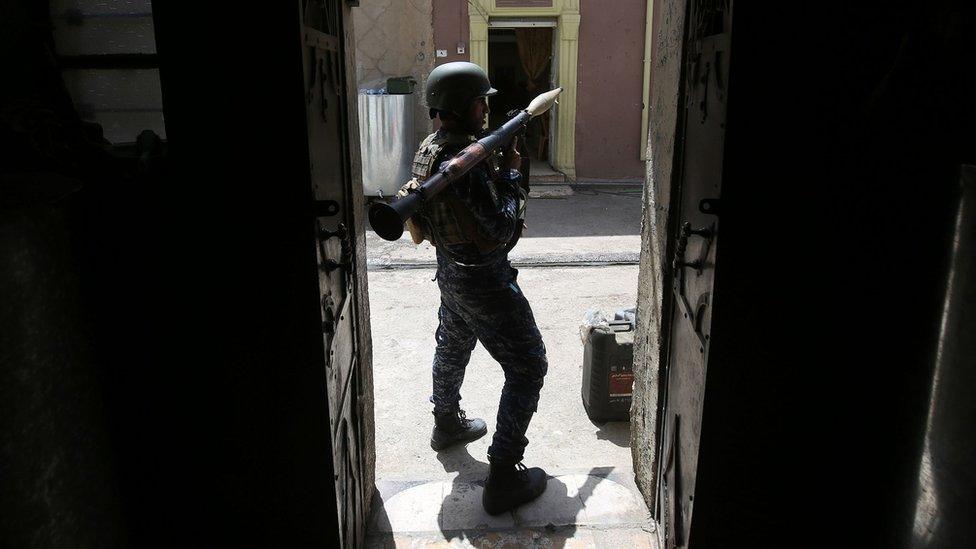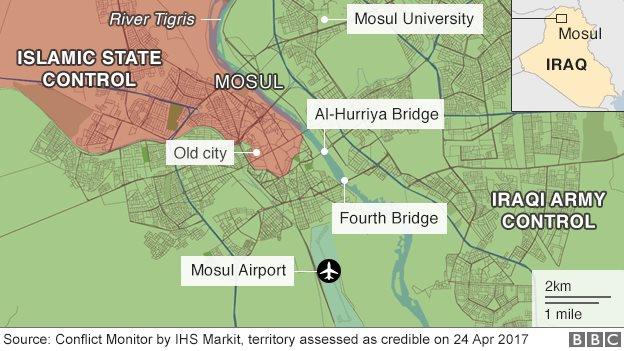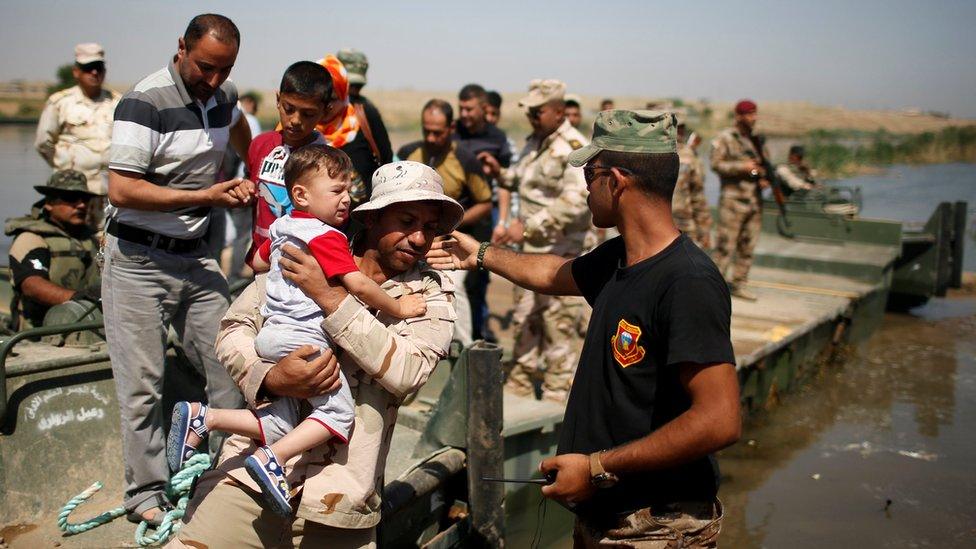Mosul battle: Iraqis open up new front to retake city from IS
- Published

A soldier guards the entrance of a building on the front line in Mosul's Old City
Iraqi security forces say they have opened a new front in the operation against so-called Islamic State (IS) militants in western Mosul.
Units from the army's 9th Division and interior ministry's Rapid Response Force are moving on the Kanisa, Haramat and Mushairfa districts from the north.
They will join troops who are pushing into the Old City from the south.
The troops launched a major offensive to recapture Mosul - the last major IS urban stronghold in Iraq - in October.
Supported by US-led coalition air strikes and military advisers, they managed to take full control of the eastern half of Mosul in January and started an assault on the west in February.

Read more

"Our forces are making a steady advance in the first hours of the offensive and [IS] fighters are breaking and retreating," military spokesman Brig-Gen Yahya Rasool told state television on Thursday morning.
An army source told the BBC that troops were already pushing into residential areas in Mushairfa, while residents said families were leaving the area on foot.
Coalition spokesman Col John Dorrian told reporters on Wednesday that they were facing "very dangerous, difficult fighting" but were making progress every day.
"I know that the Iraqi security forces are confident of their ability to finish the enemy in place in Mosul very soon," he said.

On Sunday, Iraqi Army Chief of Staff Lt Gen Othman al-Ghanimi told the state-run Sabah newspaper that he expected the battle in the west to be completed "in a maximum of three weeks" despite the fierce resistance his troops had encountered in the densely-populated Old City.
Federal Police officers there are only a few hundred metres away from the symbolically important Great Mosque of al-Nuri, where IS leader Abu Bakr al-Baghdadi proclaimed the establishment of a "caliphate" after Mosul and much of northern Iraq fell to the jihadist group in 2014.
Col Dorrian said the coalition believed there were "well short of a thousand" militants left in Mosul, but that they were "going to be very difficult to get out".
The BBC's Jonathan Beale and cameraman Barnaby Mitchell were embedded with Iraqi troops in April
"When in that type of dense urban terrain, a small number of fighters can control that territory," he added.
The coalition believed there were between 3,500 and 6,000 militants in and around the city before the offensive began.
Col Dorrian said the remaining militants were also continuing to carry out "probing attacks" along the Iraqi security forces' perimeter around Mosul, using smalls arms fire and car bombs, in an attempt to escape.

More than 580,000 civilians have been displaced by the fighting, most of them from west Mosul
They were also shooting civilians trying to flee and firing mortars and rockets randomly at residential areas, he added.
The United Nations has said the battle has left more than 8,000 civilians dead or wounded, but that figure only includes people transferred to medical facilities.
Iraq's military does not release casualty figures, but US Gen Joseph Votel told a Congressional hearing at the end of March that at least 774 Iraqi security personnel had been killed and 4,600 wounded.
More than 580,000 civilians have also been displaced by the fighting, among them 419,000 from western Mosul, the Iraqi authorities say. Most have taken refuge in nearby camps and reception centres. Others are staying with relatives and friends.